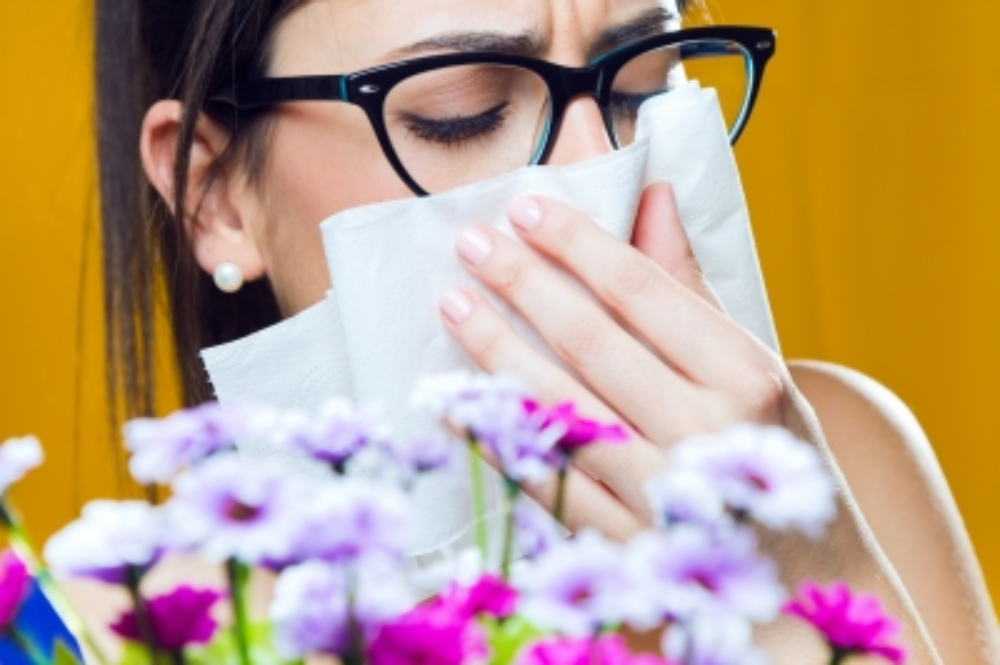Spring Eye allergies have arrived with the coming of spring
Many have experienced the clogged, swollen, itchy eyes associated with spring eye allergies. Pollen, dust mites, mold, and pet dander are just a few of the frequent allergens that cause these allergies.
Eye allergies, often called “allergic conjunctivitis,” are allergic reactions like any other. They are caused by histamine production by the immune system, which causes inflammation in reaction to the previously described benign stimuli. To learn more about this, contact the best eye doctor in Dubai.
What exactly are Eye allergies?
An allergic reaction to the eyes, also known as allergic conjunctivitis, occurs when the eyes come into contact with an allergen. This chemical is referred to as an allergy. Allergens include things like pollen, dust, and smoke.
The immune system normally protects the body against hazardous intruders such as bacteria and viruses to avoid infections. Yet, the immune system misidentifies an allergen as a hazardous substance in allergy sufferers. So, even though the allergen may be safe otherwise, this causes the immune system to generate molecules that fight it.
The response causes irritating symptoms, including itchy, red, and watery eyes. In addition, certain people’s eye allergies may be linked to eczema and asthma.
What are the possibilities for overcoming eye allergies?
If you have allergies and are prone to eye reactions, you will most likely experience eye allergy symptoms when you come in touch with potential allergens.
Even though there is no known cure, allergy symptoms can be lessened with treatment. Medication and eye drops are effective in the majority of cases. To provide long-term relief, allergy injections may assist your body in developing immunity to specific allergens.
If your symptoms persist after treatment, or if you see considerable amounts of discharge in your eyes, contact Eye Doctors in Dubai immediately. This could be an indication of another eye problem.
Sneezing
As pollen enters your nose due to a plant’s release, your immune system tells your brain to remove it violently. As a result, spending more than five minutes outside in the spring is impossible without sneezing.
You have a cold or the flu
Spring allergies frequently cause post-nasal drip, an uncomfortable trickle of mucus from your sinuses into your throat. Such leakage may cause a persistent sore throat or cough. When the leak is fixed, your throat problems should go away—often with the help of nasal sprays or antihistamines.
Watery, itchy eyes
Histamines, substances generated by your body’s mast cells in response to an invader such as tree pollen, are the primary cause of most allergy symptoms. In addition, histamines can cause swelling and inflammation in your eyes, making them feel watery, gritty, or itchy.
Shiners who are sensitive
Spring allergies often leave you with puffy eyes and the look of being knocked out in a boxing match. The doctors at Ophthalmology in Dubai usually look for “allergic shiners,” which are symptoms of edema under the eyes and bluish skin tone. This is caused by congestion in the small blood vessels under the skin and the eyes.
Headache
Allergy patients frequently get clogged-up, dull headaches known as “sinus headaches,” since congestion can cause everything in your nose and sinuses to back up. Without a doubt, the increased pressure might cause a headache.
Itchy, flaky skin
Atopic dermatitis, often known as eczema, is a skin rash caused by an allergen that irritates and inflames the skin. This could cause your skin to become particularly dry and itchy throughout the spring.
Asthma symptoms
According to the AAFA, up to 25 million Americans may have asthma, with spring eye allergies being the most common cause. When you breathe in any allergen, such as pet dander, mold, dust mites, or pollen, your immune system responds by secreting antibodies that cause inflammation of the airways in your lungs and make breathing more difficult.
Weird fruit reactions
Yes, consuming fruit can exacerbate the symptoms of spring eye allergies. For example, you can get itchy ears, rashes, or swelling around your lips if you bite into a particular piece of sweet stuff. Since several fruits have a chemical structure similar to pollen, these reactions may result from pollen food allergy syndrome.
In conclusion, common symptoms include redness on the inside or outside of your eye. Other red signals include light sensitivity, tears, blurred vision, a burning sensation, and itching. Eye allergies can occur alone or with nasal, eczema, or skin allergies.
First, consult your Eye Specialist to determine whether or not it is an allergy. Then, reach out to the Eye Care Clinic for more details.
